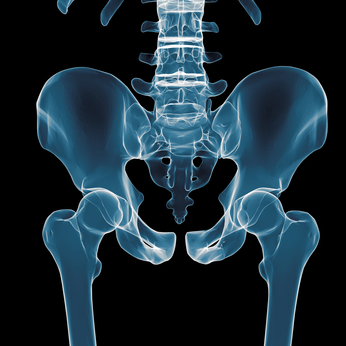|
Hip joint

The hip joint is a very deep ball-and-socket joint, meant to
extend, flex and rotate. Thus, if the hip is sufficiently
flexible, it will be able to rotate and flex enough to take
strain off the knee joint, especially in the cross-legged
sitting poses. It's not that easy, however, for the hip has
some of the strongest ligaments in the body, which prevent the
femur (thigh bone) from being dislocated. The cost of this
stability/however, is decreased mobility.
It takes careful, consistent
practice to increase this limited range of motion, as we
lengthen the muscles in the hip region and gently stretch the
ligaments. This is the key to being comfortable and
anatomically safe in the cross-legged sitting postures. The
knee should swing out to the side and down to the floor
through a lateral rotation in the hip socket. To move to half
or full lotus position, in which one or both ankles come up
onto the thigh(s), it is imperative that this movement take
place only through further lateral rotation of the hip
joint, not through twisting the knee joint.
Remember: never force the knees into a yoga
posture. Move carefully and slowly with patience and
concentration. Use the breath to help release the hip
joints.
© 1997-2000 Ananda Church of
Self-Realization
|